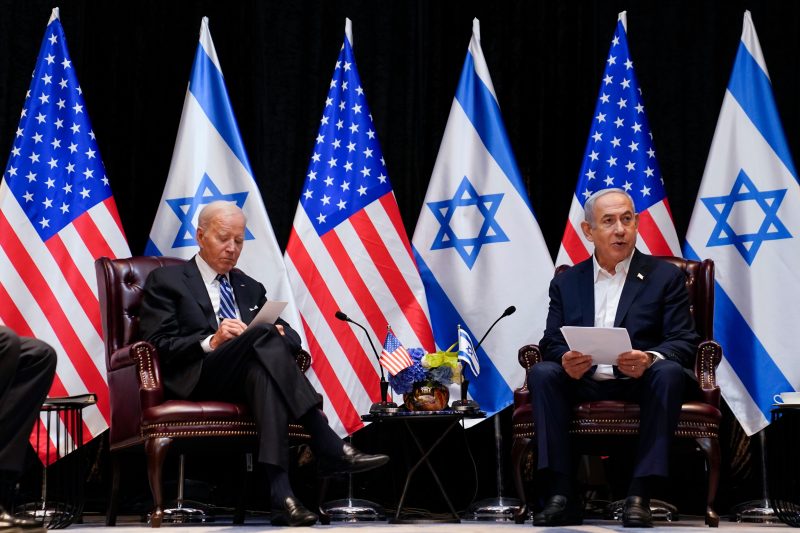Body:
The ongoing conflict between Israel and Hamas in Gaza has once again ignited a heated debate over the role of the United States in mediating a peace agreement. President Joe Biden and Israeli Prime Minister Benjamin Netanyahu seem to be moving closer to a potential breach in their relationship as they face differing stances on how to address the Gaza war.
Historically, the United States has been a staunch ally of Israel, providing military, economic, and political support. However, President Biden’s approach towards the Israeli-Palestinian conflict marks a departure from the policies of the previous administration. While former President Trump openly supported Israel’s aggressive tactics, Biden is pursuing a more balanced approach that prioritizes diplomacy and concerns for civilian casualties.
The recent escalation in violence has amplified calls for the United States to intervene and help cease the hostilities. However, the Biden administration finds itself in a difficult position due to its commitment to multilateralism and diplomacy. President Biden has openly stated that he supports a two-state solution, where Israel and Palestine coexist peacefully, and has called for a ceasefire. This approach contrasts with Netanyahu’s hardline stance, which prioritizes the security of Israel at all costs.
Netanyahu’s reluctance to agree to a ceasefire has strained the relationship between the two leaders. The Israeli Prime Minister has faced criticism for the number of civilian casualties resulting from Israel’s airstrikes on Gaza. While he maintains that Israel is acting in self-defense against rocket attacks from Hamas, the international community, including the United States, has called for restraint and humanitarian aid for the people of Gaza.
The United States has repeatedly expressed concerns over the loss of civilian lives in Gaza and has called on Israel to take steps to prevent unnecessary harm. President Biden has faced pressure from within his own party to be more assertive in his approach towards Israel. Progressive Democrats have pushed for conditioning the annual military aid to Israel based on its compliance with international law and respect for human rights. This poses a significant challenge for Biden as he seeks to balance maintaining a strong alliance with Israel and addressing the concerns of his own party.
The strained relationship between Biden and Netanyahu raises questions about the future of US-Israel relations. While the alliance remains strong at the core, fundamental differences in how to approach the Israeli-Palestinian conflict may lead to a potential rift. President Biden’s emphasis on diplomacy and human rights echoes a growing sentiment within the Democratic Party, which is increasingly critical of Israel’s policies.
As the conflict in Gaza escalates, it is imperative for the Biden administration to find a way to navigate this diplomatic challenge successfully. President Biden has an opportunity to showcase his foreign policy acumen by prioritizing peace, diplomacy, and protection of civilian lives. It is crucial for both leaders to engage in constructive dialogue and find common ground to de-escalate the situation and move towards a lasting peace agreement that brings stability to the region.
In conclusion, the Gaza war has added strains to the United States-Israel relationship, as President Biden and Prime Minister Netanyahu differ on approaches to resolve the conflict. While the alliance between the two countries remains strong, President Biden’s commitment to diplomacy and humanitarian concerns has caused tensions with Netanyahu’s hardline stance. As the conflict continues, it is essential for both leaders to engage in constructive dialogue to find common ground and work towards a peaceful resolution that protects the lives of civilians in Gaza and ensures the security of Israel.



























